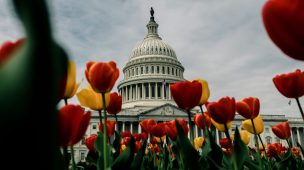9 November: What’s going on in ESG and insurance?
9 November, 2023
Welcome to our ESG roundup, keeping you up to date on the insurance industry’s most significant ESG-related news. This week’s topic: Insurance and the Climate Challenge
Read our summary and analysis below
Analysis
Insurance and the Climate Challenge
Some may view the arena of ESG as filled with esoteric metrics and reporting systems divorced from practical, real-world matters. The truth, though, is that as the climate challenge grows the incorporation of environmental (the “E” of ESG) considerations in insurance plays a critical role in protecting vulnerable areas. (In this analysis, we are not covering “S” or “G”).
Reuters describe the industry as exposed on two key fronts to the climate challenge: increasing claims due to climate-exacerbated natural disasters and reputational risk from insuring and investing in high-carbon assets. The former has contributed to some areas becoming uninsurable, and yet these are the regions most under threat and in need of coverage. In California, for example, the US insurance giant State Farm have stopped selling any wildfire insurance and this is just the tip of the iceberg. Other areas such as Florida are facing similar problems.
In response, the International Association of Insurance Supervisors (IAIS) have set out five areas of supervisory activity for regulators that can contribute to reducing ‘protection gaps’. Protection gaps are areas vulnerable to natural catastrophe that lack the ability to gain coverage due either to a lack of insurability or excessively high premiums. It is not difficult to see how ESG elements could be integrated to help narrow these gaps. One of the IAIS’s areas of supervisory activity is ‘fostering an enabling regulatory environment to support insurance availability and coverage uptake’. It is not difficult to envisage how policymakers could consider ESG metrics when creating regulatory incentives to enable coverage of vulnerable areas.
In the UK, the government is set to unveil proposals as early as January next year to regulate agencies that evaluate the ESG performance of companies. This is to ensure that the stamping of a particular investment fund as ESG-worthy is not based on ‘pure subjectivity’ in the words of one UK government official. Bringing this kind of thinking to the regulatory environment to practically address uninsured areas could be highly beneficial in protecting people from the threats of climate change.
Summary
Headwinds to ESG Progress
ESG Watch: Battered on all fronts, insurance industry struggles to rise to climate challenge (Reuters)
The insurance industry is exposed on two fronts to climate change: an increase in claims due to climate-exacerbated natural disasters, and the risk to reputation of continuing to insure and invest in high-carbon assets.
Interestingly, there are not many players in the fossil fuel insurance market. The top 25 fossil fuel insurers control 69% of the market. In some ways this is positive as moving a small number of players away could have a significant impact. However, whilst pressure has seen 45 companies committed to end or restrict coal sector underwriting, fewer have committed to do the same for the polluting tar sands industry and oil and gas more generally.
Meanwhile, a growing number of locations are becoming uninsurable or at the very least are facing rising premiums. State Farm has stopped selling wildfire insurance anywhere in California, and many insurers have abandoned Florida altogether with premiums almost triple the national average according to the Insurance Information Institute. Whilst many company directors accept that there is a problem, not many know how to approach it. The insurance industry can help figure out the long-term impacts for firms and how they can adapt to them.
UK investors pull out of ESG funds (Financial Times)
So-called responsible investment funds registered a record outflow of £544mn in the UK in September, meaning investors have withdrawn more than £1bn so far in 2023. This is amid the market view that interest rates would stay higher longer and the market has become more volatile.
Such funds saw huge inflows between 2018 and 2021 riding a wave of enthusiasm, but since the end of pandemic restrictions they have struggled due to rising interest rates, booming energy stocks and political backlash in the US. Analysts at Deutsche Bank attributed Europe-wide ESG underperformance to “surging rates and the energy crisis”.
Grant Shapps warns Aviva over ethical investment policies on defence (The Telegraph)
UK Secretary of Defence Grant Shapps has warned Aviva against any “immoral” withdrawal of backing for defence companies, after a letter it sent to investors triggered a backlash. In the letter Aviva told customers it would be selling out of “certain companies that do not meet our Aviva Baseline Exclusion Policy” which includes companies that “might be involved in coal production, weapons/arms, and tobacco production”. Aviva downplayed the letter and insisted it is not dumping UK defence stocks following a swift intervention from Shapps and defence procurement minister James Cartlidge. It is understood the letter was thought to have been poorly worded internally.
ESG Regulation and Frameworks
UK set to unveil regulatory regime for ESG ratings industry (Financial Times)
The UK government is set to unveil proposals as early as January next year to regulate agencies that evaluate the ESG performance of companies. This follows a three-month consultation that closed in June this year.
The push follows concerns in the UK and elsewhere about a largely unregulated sector that wields broad influence over trillions of pounds worth of sustainable investments. “It’s pure subjectivity hiding under the veneer of objectivity,” complained one UK government official.
Although a proposal to create a new watchdog has not been ruled out, expanding the remit of the Financial Conduct Authority is considered the likelier option.
France restricts ESG fund labels to target fossil-fuel industry (Luxembourg Times)
France will only let funds use the national ESG label if they blacklist fossil-fuel companies that are expanding production. Finance Minister Bruno Le Maire said excluding oil and gas companies with expansion plans is “essential” to fighting climate change.
In France, funds claiming to target environmental or social metrics can market themselves using a voluntary so-called SRI label. Since its introduction in 2016, the number of SRI funds has grown to over 1,000 with assets of more than $800 billion, according to government data.
Trio of industry groups standardise ESG definitions (FT Adviser)
Three groups in the investment industry have come together to standardise the way they define responsible investment. The guidance paper defines five different approaches to responsible investment, namely:
- Screening: applying rules based on defined criteria that determine whether an investment is permissible
- ESG integration: ongoing consideration of ESG factors within an investment analysis and decision-making process with the aim to improve risk-adjusted returns
- Thematic investing: selecting assets to access specified trends
- Stewardship: the use of investor rights and influence to protect and enhance overall long-term value for clients and beneficiaries, including the common economic, social and environmental assets on which their interests depend
- Impact investing: investing with the intention to generate positive, measurable social and/or environmental impact alongside a financial return
Reasons for Optimism
IAIS outlines actions for insurance supervisors in addressing natural catastrophe protection gaps (International Association of Insurance Supervisors)
The International Association of Insurance Supervisors (IAIS) highlights that insurance supervisors have a strong basis for supervisory action to help reduce NatCat protection gaps, i.e. the uninsured portion of economic losses caused by natural disasters, in support of their various supervisory mandates. More protection gaps may emerge due to climate change, increasing the severity and frequency of catastrophes and thus challenging the insurability and affordability of coverage in certain areas.
In their recent report they outline five major areas of supervisory activity that can contribute to addressing protection gaps, supported by case studies from jurisdictions spanning all IAIS regions. These are:
- Contributing to the assessment of protection gaps
- Enhancing consumer financial literacy and risk awareness
- Incentivising risk prevention
- Fostering an enabling regulatory environment to support insurance availability and coverage uptake
- Advising government and industry on financial inclusion and societal resilience
Berjaya Sompo: Insuring a sustainable future through ESG (The Edge)
Malaysian general insurance firm Berjaya Sompo is driving forward a number of environmental initiatives, including the integration of underwriting methods such as the climate change principle-based taxonomy (CCPT) classification – a way to classify and report climate-related risks and opportunities for businesses, thus helping financial institutions identify and manage these factors. They also have restricted insuring and investing in new coal-fired power plants and aim to achieve a net zero carbon footprint by 2050.
They also recently launched “The Good Policy” campaign to improve the lives of those in need. The campaign is a testament to the company’s dedication to positive change, demonstrating its commitment to improving the lives of the community at large.
Insurer body plans infrastructure fund for climate-hit economies (Financial Times)
The Insurance Development Forum plans to raise an infrastructure fund of hundreds of millions of dollars to help developing countries deal with the effects of climate change.
Ahead of this month’s COP28 climate summit in Dubai the chair of the Forum’s steering committee and of insurance group Zurich, Michael Liès, said the climate summit would be an opportunity to spread the message that it would be better to spend money on prevention measures ahead of disaster than after. Liès said there was a need to bring “neutrality and objectivity” to the climate discussion, and that the insurance industry could provide that through its expertise in the modelling of pricing and risk.
‘ESG’ Is Too Important to Ax, Investors Say (BNN Bloomberg)
Despite Republican backlash in the US including laws seeking to ban ESG, there is evidence to suggest investors continue to have confidence in ESG metrics. 89% of investors labelled the metrics “mainstream” and 57% said the label shouldn’t be replaced by something less incendiary.
Although investors in the US pulled $2.7 billion from sustainable funds in the third quarter, some of the biggest investment firms are expanding their ESG business. BlackRock, the world’s largest asset manager, stated last month that its sustainable long-term flows have been positive every quarter since the beginning of 2022. It now manages almost $700 billion of sustainable strategies on behalf of clients, up from $200 billion in 2020. 88% of senior investors surveyed by Bloomberg said they would expand their assets under management toward climate-friendly strategies over the next two years.
Lloyd’s of London ‘deeply sorry’ over slavery links (BBC)
After an independent report found the 335-year-old insurance market had played a “significant role” in enabling the transatlantic slave trade, Lloyd’s of London has said it is ‘deeply sorry’ and will invest £40m to help impacted communities.
Alexandre White, one of the professors behind the study, stated: ‘The insurance of ships, cargo and captured enslaved persons facilitated the growth of the transatlantic slave trade.’ He concluded that subscribers to Lloyd’s including members of the governing body of the market had ‘significant connections to the transatlantic slave trade’.
BIoomberg Intelligence Survey Finds Investors and C-Suite Embrace ESG, Despite Concerns (Bloomberg)
In a survey of 250 C-suite executives and 250 investors globally Bloomberg Intelligence found that ESG remains a backbone of financial markets and corporate strategy, driven by global regulation, consumer demands and competitive ambitions.
Whilst only 55% of C-suite executives see ESG as one of their top two priorities, and geopolitical risks and macro concerns may shift priorities in the short-term, the survey indicates strong long term support for ESG with 85% of investors and companies surveyed planning to boost ESG investment over the next five years. A vast majority also said it helped deliver a more robust corporate strategy and seven in ten executives view energy-transition efforts as a competitive advantage.
Floodbase and ARC Ltd. partner to address Africa’s flood insurance gap (Reinsurance News)
In a significant move towards mitigating the devastating impact of floods in Africa, Floodbase has recently announced a strategic partnership with African Risk Capacity Limited (ARC Ltd.). The collaboration aims to develop, distribute and scale parametric flood insurance solutions across the continent.
One of the significant challenges in providing insurance coverage has been the vast expanse of farmlands and the high-risk status of African nations, making it difficult to structure adequate indemnity insurance. To bridge this insurance gap, ARC Ltd. and Floodbase will collaborate to develop parametric flood microinsurance products that can be scaled to benefit smallholder farmers, offering protection against agricultural risks.


